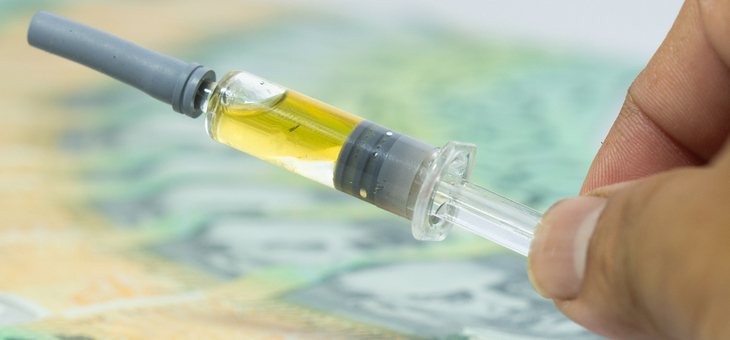A leading ethicist says people should be paid to get a COVID-19 vaccination to help stamp out the coronavirus.
Ideally, vaccination should be voluntary, says Professor Julian Savulescu, from the Uehiro Centre for Practical Ethics at the University of Oxford, in an opinion piece for the Journal of Medical Ethics. But because herd immunity requires up to 82 per cent of the population to be vaccinated, ‘Plan B’ incentives might be necessary.
“Vaccines are some of the safest and most effective interventions we have and have achieved incredible successes. We no longer face diseases that killed our ancestors,” he says, “but vaccine hesitancy is on the rise even for well-established vaccinations.
“The problem is likely to be bigger for a new vaccine. For established vaccines, some countries have turned to mandatory vaccination schemes. In an ideal world, the vaccine would be proven to be 100 per cent safe. But there will likely be some risk remaining, and there are risks that have not yet been identified.
Prof. Savulescu identifies four conditions that need to be met to make a vaccination mandatory: “A grave threat to public health; the vaccine is safe and effective; the pros outweigh the cons of any suitable alternative; and the level of coercion is proportionate.”
In August, health minister Greg Hunt said a prospective vaccination would not be mandatory. But he said Australians who reject coronavirus vaccination “could lose access to some welfare payments”.
“We reserve the right, subject to medical advice, to take steps that might assist.
“We are one of the world’s great vaccination nations and I expect very widespread uptake,” he said.
“We are keeping on the table the existing mechanisms we have such as no jab, no pay (and) no jab, no play,” he said.
‘No Jab, No Pay’ is an Australian government initiative to help ensure all children are fully immunised for conditions such as tetanus, polio and diphtheria included in the National Immunisation Program (NIP) Schedule. To be eligible for the full Family Tax Benefit A payment and the Child Care Subsidy, children need to be immunised.
In March, the national cabinet mandated being immunised for influenza would be a condition of entry to aged care facilities in all states and territories.
ABC News reports that Australia is arranging access to 134 million potential doses of four different vaccines at a cost of $3.2 billion.
In an opinion piece in The Age, Victorian Labor senator Raff Ciccone proposed that people who refused a COVID-19 vaccine be barred entry from mass gatherings, restaurants and other private businesses.
Most Australians appear willing to take a COVID-19 vaccine, but a poll revealed 12 per cent were unlikely to take it.
Julie Leask, a vaccine research specialist at the University of Sydney, said the data was “fairly predictable”.
“There is (always) going to be a number of people who are a bit cautious and they understandably want to learn more about the vaccine before they really commit to it.
“And then there’s a small number who will always be against vaccination.”
Westmead Institute founder and vaccine expert Tony Cunningham said. “The population has got to be assured of safety. That’s critical. We’re trying to match up the urgency of thousands and thousands of deaths in Europe and the US against ensuring that we don’t make a misstep and have a vaccine that’s unsafe.
“That would be a disaster. It would ruin public confidence in vaccines.”
Prof. Savulescu says ‘anti-vaxxers’ may never be convinced to take a vaccine, but payment may persuade others.
“The advantage of payment for risk is that people are choosing voluntarily to take it on. As long as we are accurate in conveying the limitations in our confidence about the risks and benefits of a vaccine, then it is up to individuals to judge whether they are worth payment,” he says.
“If a person chooses that option, it is because they believe that, overall, their life will go better with it, in this case, with the vaccination and the payment.
“It is true that the value of the option might exercise force over our rational capacities, but that is no different from offering a lot of money to attract a favoured job applicant,” he argues.
He says a payment vaccination scheme would be much cheaper than the cost of a lockdown.
“It would make economic sense to pay people quite a lot to incentivise them to vaccinate sooner rather than later – which, for example, would speed up their full return to work.”
Are you ready to get a COVID-19 vaccine? Should a COVID-19 vaccination be mandatory?
If you enjoy our content, don’t keep it to yourself. Share our free eNews with your friends and encourage them to sign up.
Related articles:
https://www.yourlifechoices.com.au/health/covid19/calls-for-hand-sanitiser-laws
https://www.yourlifechoices.com.au/health/covid19/no-coronavirus-vax-for-older-aussies
https://www.yourlifechoices.com.au/health/covid19/older-men-key-to-beating-covid

